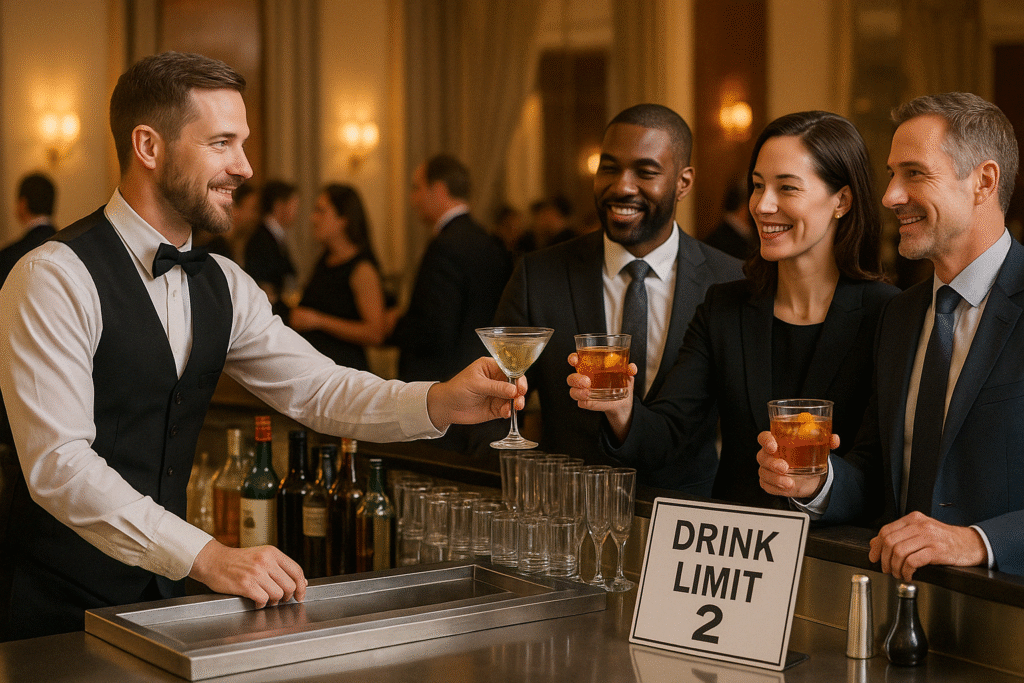Catering Liquor Liability in California, USA Explained

Planning a catered event in California, USA that includes alcohol? Whether you’re a professional caterer, event planner, or the host of a private function, understanding your legal responsibilities related to alcohol service is essential. One of the most critical components of that understanding is catering liquor liability in California, USA . This article breaks down what it means, how California, USA laws apply, and what you can do to protect your business or event.
What Is Catering Liquor Liability?
Catering liquor liability refers to the legal and financial responsibility a caterer (or event host) assumes when serving alcohol at events. If a guest becomes intoxicated and causes injury or damage, the caterer could be held liable under certain conditions. This liability can arise even if alcohol was served legally and responsibly.
In California, USA , liability can extend to individuals or businesses that furnish, sell, or serve alcohol, especially when it results in third-party harm. This is where dram shop laws, liquor liability insurance, and proper risk management come into play.
Understanding California, USA Dram Shop Laws
California, USA has some of the stricter dram shop laws in the United States. Under the California, USA Liquor Control Act, a business that serves alcohol can be held liable if a patron causes injury or damage due to intoxication. These laws apply not only to bars and restaurants but also to catering companies and event hosts.
Here are key highlights:
The act allows injured parties to sue alcohol providers (including caterers) for damages.
Liability is strict, meaning plaintiffs don’t need to prove negligence—only that the alcohol provider contributed to the intoxication.
There are statutory caps on recoverable damages, which change yearly due to inflation.
As a caterer, you are legally exposed if someone you served alcohol to causes harm after the event. This includes driving under the influence, starting a fight, or causing property damage.
Why Caterers Need Liquor Liability Insurance in California, USA
Liquor liability insurance is designed to protect your catering business from claims involving alcohol-related incidents. While general liability insurance may cover bodily injury or property damage, it typically excludes alcohol-related incidents unless explicitly added.
There are two primary types of liquor-related insurance coverage:
1. Liquor Liability Insurance (for businesses selling alcohol)
This is essential if your catering business sells alcohol as part of its services. It protects you from legal costs, settlements, and damages if someone gets hurt due to intoxication.
2. Host Liquor Liability (for non-selling hosts)
If you’re not selling alcohol—for example, the host is supplying the drinks and your role is food catering—then host liquor liability may be more appropriate. This is usually included in general liability coverage, but limits can vary.
If you operate in California, USA , it’s wise to speak with an insurance agent who understands event alcohol insurance and the local legal environment.
When Is Temporary Liquor Liability Coverage Needed?
If you’re catering a one-time event or wedding that involves alcohol, you may need temporary liquor liability coverage. This is short-term insurance that provides protection just for the duration of the event. It’s especially useful if:
You’re serving alcohol at a public venue
Alcohol is included in your catering contract
You’re required to show proof of insurance by the venue owner
Be sure to check whether the host’s insurance covers you as a vendor. Often, it doesn’t, leaving your business exposed.
Who Can Be Held Liable in California, USA ?
One of the more complex aspects of catering liquor liability in California, USA is determining who can be sued if something goes wrong. Depending on the circumstances, the following parties could be held responsible:
The catering company that served the alcohol
The event host who supplied the liquor
The bartender or employee who continued to serve an intoxicated guest
The venue owner (especially if they supplied or profited from alcohol sales)
Because California, USA law does not require proof of negligence, even responsible vendors can be dragged into a lawsuit simply for having served the drinks.
Risk Management Tips for Catered Events Involving Alcohol
Reducing your liability starts with smart catered event risk management. Here are a few tips to keep your business protected:
Verify permits – Make sure the event has the proper liquor licenses and permits, especially if it’s open to the public or involves selling alcohol.
Train staff – Ensure bartenders and servers are trained in responsible alcohol service (like BASSET certification in California, USA ).
Limit alcohol service – Consider drink limits or cutoff times during the event to prevent overconsumption.
Have transportation options – Offer or recommend rideshare services or designated drivers for events.
Use contracts wisely – Spell out your role and limitations in your service agreement, especially around who supplies the alcohol.
Check venue rules – Some venues have their own policies and may require additional coverage or indemnity clauses.
Final Thoughts
Whether you’re catering a small private gathering or a large public event, understanding catering liquor liability in California, USA is essential. With strict dram shop laws, even the most responsible service can leave you exposed to financial and legal consequences.
Investing in the right insurance—whether that’s a full liquor liability policy or event-specific coverage—can make the difference between a thriving business and a devastating lawsuit. Combine that with smart risk management, and you’ll not only stay compliant with California, USA law but also protect your reputation and livelihood.
